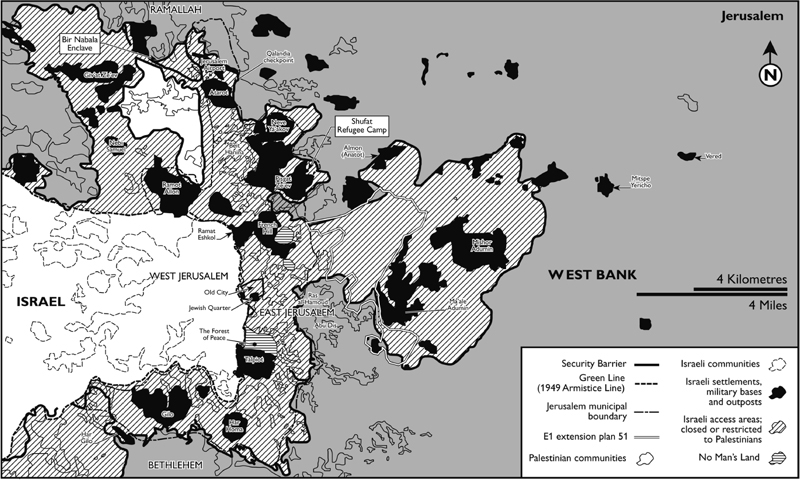Foreword
When I reviewed the British version of Emma Williams’s book in the New York Review of Books three years ago, I hoped that it would soon be available in the United States in an American edition. The book had been very well received by British, Australian, and other reviewers. Almost of all them commented on the combination of the beauty of the prose, the lucid under-standing of the political issues, and the emotional horror of the conflict with the author’s clear-sighted balance. They recognized that it was the manifest intention of the writer to see the conflict from both sides, not in a way that involved sitting on the fence but truly getting to grips with how painful the situation is for both peoples involved in the Israeli-Palestinian conflict.
I am delighted that this updated version is now available in the US. Due not least to President Obama’s call for real progress through purposeful negotiation, the Israeli-Palestinian conflict is once again in the forefront of international attention. The significance of a book of this kind is therefore even greater than it was three years ago, a time when it was clear to all that under the Bush administration there was going to be no movement on the peace process. This updated version has even more relevance now than the first edition had then.
Emma Williams provides a personal and highly perceptive account of working daily with both Israelis and Palestinians during a three-year period of extreme violence and emotion, the second Intifada. Because she has a strong affection and respect for the people of both sides, her account is of particular interest, and value, to those who are part of the search for a resolution, as well as to all those interested in this longstanding human tragedy.
Williams, her husband, a UN official, and their three small children (a fourth was born in Bethlehem at the height of the violence) arrived in Jerusalem four weeks before the Intifada started and insisted on staying on as a family. They thus shared, to an unusual degree, the very different anxieties and hardships of ordinary Israelis and Palestinians. Though it is unusual and not easy to arrange, this sharing of experience is invaluable if UN officials are fully to understand and to play a positive role in helping to resolve issues that fuel violence and conflict.

A medical doctor, Williams worked by day in Palestinian hospitals on the Mount of Olives and near Ramallah. Her husband worked mostly in Gaza and the West Bank. At night they returned, sometimes with difficulty, to their children—at school during the day—and their house in a largely Arab part of Jerusalem. The couple had a great many Israeli friends with whom they would spend time in the evenings and on the weekends.
They experienced at first hand the violence—suicide bombings, Israeli military counter-measures, checkpoints, and innumerable disruptions of normal life, increasingly irrational reactions on all sides, hatred and the insatiable desire for revenge, and, last but not least, having to explain it all to three young children. They also witnessed many acts of heroism, decency, and understanding.
The result is not only an intimate, moving, and revealing book about two extraordinary peoples whose lives and futures are now in the balance, but also an important contribution to understanding the conflict, its history, and current status. Emma Williams’s account of what the Israeli-Palestinian conflict means for ordinary people on both sides, how they react to it, what they fear and what they hope for, could well, in the long run, be far more useful than all the partisan rhetoric, the hatred, the myths, and the lust for revenge that inevitably lead, over and over again, to extreme violence.
Meanwhile, this beautifully written book will certainly help outside observers to understand better the people of both sides and their struggle. Is it too much to hope that it might also help Israelis and Palestinians to see each other in a less baleful light, as they must do if they are to avoid a shared, and terminal, calamity?
—Brian Urquhart